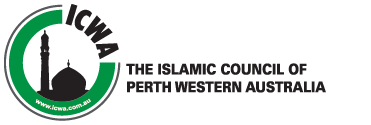Conclusion
The Muslim experience in Australia demonstrates the impact social attitudes, and the policies they create, can have upon peoples’ lives. European notions of inherent white superiority, which were dominant in public discourse even up until the late 1940s, meant that Malay, Afghan, Indian and Arab residents of this country, no matter how valuable their contribution, were not regarded as worthy of full participation in society. Forbidden to mine, the Afghans in inland Australia were the water and stores carriers. Forbidden to vote, to obtain social welfare payments such as the old age pension, or to become naturalised, because of their race, the pre-war Muslims were allowed only to exist upon the margins of society. In effect, the policies of 1901 and 1903, based as they were upon false notions of the relationship between race and standard of living, wiped out the Australian Muslim community for nearly seventy years.
The Second World War and the economic boom which came in its wake, mark a watershed in the history of Muslims in Australia. The nightmarish policies of the Third Reich, the growing international movement against colonialism and the loss of European prestige through the Japanese advances in the Pacific during the course of that war, made the old imperial ways untenable. World opinion began to change. Notions of racial superiority became unacceptable. Newly independent post-colonial states were wary of dealings with nations adhering to racist policies. Within Australia voices for change became stronger each year until the content, if not the form, of the White Australia Policy had to go. It has only been since the change in national policy from the late 1960s that a Muslim community has been able to develop once again. Without changes in community attitudes in the past few decades, such changes would not have been sustainable.
National policies in a democracy depend ultimately upon the attitudes of the voters. A multicultural policy framework, which has at least been accepted if not actually demanded by the people, has enabled the nation to develop a new demography and has tried to provide a welcoming environment for diverse cultural groups and minority religions. Nonetheless there have been severe problems, especially in terms of local government attitudes to Muslims and negative media stereotyping of Islam and Muslims. These have highlighted the need, for those who understand, to struggle in support of multiculturalism against those forces which see assimilation, with the stamping out of diversity, as their nirvana. This is why many of the forays of the Islamic Councils and AFIC into the public arena have been, in recent years, in defence of this policy framework. The extent to which the Muslim community will strike enduring roots in Australian soil has yet to be seen, as does the degree of success Australia will have in creating, in reality rather than rhetoric, a genuinely multicultural society in which a diversity of cultures, including the indigenous, is truly valued.
